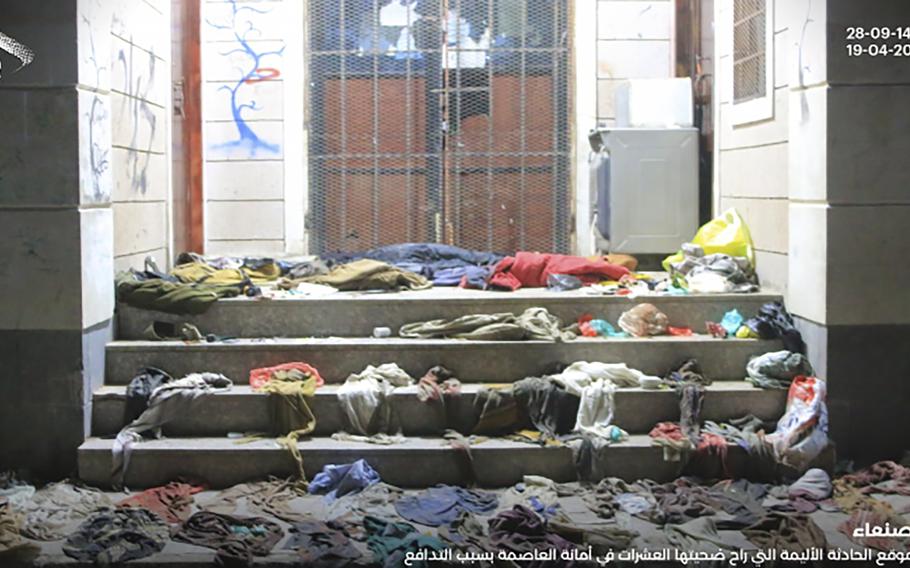The extent of human suffering in the Yemeni civil war is hard to grasp. In the earliest days of this proxy war, the United States and Western Europe saw it in black and white: the evil Iran backing the Houthi rebels against the good Saudi Arabia/United Arab Emirates coalition defending the legitimate Yemeni government.
More than 23,000 airstrikes executed predominantly by Saudi and UAE warplanes killed tens of thousands Yemeni citizens and destroyed vital infrastructure. Bringing the proxy war even closer to Yemen’s 34 million inhabitants, the Saudi/Emirati-led coalition created a humanitarian catastrophe by sealing off Yemen from critical imports.
Already the poorest of all Arab countries, Yemen’s citizens are dependent upon international assistance for everything, including food, fuel, drinking water and medicine. As in all wars, the helpless youth suffer the hardest. UNICEF estimates that 13 million Yemeni children need humanitarian assistance, 2 million have lost their homes, and more than 10,200 have been killed or maimed.
Yemen’s own internal ethnic and political divisions triggered the chaos. Since its unification in 1990, Yemen had been ruled by its strongman president, Ali Abdullah Saleh. Inspired by the Arab Spring, in 2012 Saleh was forced to yield power to his vice president, Abd Rabbu Mansur Hadi. The economy faltered, energy costs soared, and chaos ensued. Backing Saleh, Iranian-backed Shiite Houthi rebels exploited the widespread dissatisfaction and captured Yemen’s capital, Sanaa. After failed negotiations, Hadi resigned and fled north to the protection of Saudi Arabia’s Deputy Crown Prince Mohammed Bin Salman.
Increasingly asserting himself over the direction of Saudi policy, MBS joined with the UAE to build Riyadh’s and Abu Dhabi’s claims of supremacy in the Gulf while attempting to strike a blow to Iran’s growing regional interests. In March 2015, the Saudis and Emiratis united a nine-nation member Sunni force to wage war on land, sea and air to align Yemeni affairs with their own strategic priorities.
What has been achieved by the Saudi/Emirati coalition is limited. Most Yemenis still live in Houthi-controlled areas, including Sanaa. Despite falling out with ex-President Saleh (whom they killed in December 2017), the Houthis were not crushed. Far from being rendered militarily impotent, in January 2022 with drones and missiles, they struck compounds and fuel facilities in Saudi Arabia and the UAE.
Organized officially to stop Iranian weapons shipments, the Saudi/UAE land and sea blockade has been more consequential for the fate of millions of Yemenis. The country had been dependent on imports for 90% of its food and almost all its medicine, and as early as June 2015 the Saudi-UAE naval blockade had successfully cut commercial shipping from docking supplies to Yemen by 85%, leaving its inhabitants in danger of malnutrition and acute distress. The United Nations estimated 78% needed emergency aid, only a trickle of which got through. Almost 18 million people were without a secure food supply and 8.4 million were deemed to be on the brink of famine. The blockade has succeeded in starving Yemenis of food and medicine, ensuring clean water is in short supply, and helping to trigger the largest outbreak of cholera in recent history.
Appeals by the international community to let humanitarian and food aid through were mostly rebuffed. The U.N.’s Group of Experts accused the Saudi/Emirati coalition of a lack of proportionality in their use of airstrikes and a blatant disregard of procedures designed to limit risk to innocent civilians. “If there are errors in the targeting process that effectively remove the protections provided by international humanitarian law, these would amount to violations.”
Despite the catalogue of apparent war crimes and breaches of international and humanitarian law caused by the Saudi/UAE-led effort to strangle rebel-held areas of Yemen into submission, there seems little appetite to pursue those responsible.
No nation desires to upset the Saudis and Emiratis and lose access to oil by condemning the atrocities that will continue anyway. The world has paid less attention to the fate of Yemeni civilians than it temporarily did about MBS’s implication in the murder of Saudi dissident Jamal Khashoggi. Even then, justice and accountability were never pursued.
Having supervised so much destruction to restore Hadi’s control over all Yemen, MBS dispensed with his services in 2022. Hope for a more enduring settlement is now vested in an eight-seat Presidential Leadership Council. Three members support breaking up the country, returning Yemen to its 1967-1990 division.
Whatever the outcome for Yemen, choosing to intervene in its conflict as a proxy war against Iranian influence and to strengthen their own authority in the region has not yielded the rewards that Riyadh and Abu Dhabi anticipated. Iran has not been humiliated. Ironically, with both nations negotiating from a feeling of power, Iran and Saudi Arabia agreed in April to stop meddling in each other’s internal affairs. There is no expectation of compliance by either side.
Josef Stalin’s alleged musing about a death being a tragedy but a million deaths a statistic has resonance in how Saudi/Emirati war crimes have escaped international accountability while the West refuses to intervene in the continuing horror suffered by the people of Yemen.
Wes Martin is a retired U.S. Army colonel who has served in law enforcement positions around the world.

This image shows the aftermath of a deadly stampede in Sanna, Yemen, April 19, 2023. A crowd apparently spooked by gunfire and an electrical explosion stampeded at an event to distribute financial aid during the Muslim holy month of Ramadan in Yemen’s capital. (Ansar Allah Houthi Media Office)